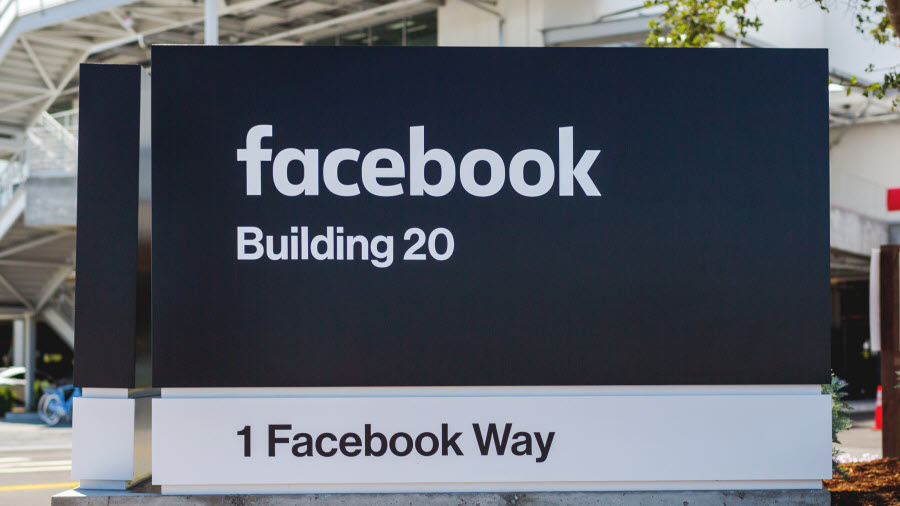FFTF Pledges to Carry Facebook Fight to 'Meta'
Said rebrand stakes out company's claim to dominate next generation of Web

The smarter way to stay on top of the multichannel video marketplace. Sign up below.
You are now subscribed
Your newsletter sign-up was successful
What's in a name? Fight for the Future suggests that Facebook's rebranding to "Meta" reveals the company's sinister "end game" of trying to control the future of the 'net.
FFTF, which helped launch the HowToStopFacebook.org web site, and may have to rebrand to howtostopmeta.org to keep pace, was not buying the repositioning as more than an effort to distract from what the man behind the curtain was planning next.
Also: Blumenthal Says Facebook Chronically Ignores internal Alarms
In the midst of a political firestorm of criticism over its handling of data and its impact on young people and the use of its platform to spread disinformation and hate speech, Facebook this week rechristened itself Meta, and because it said the next iteration of the internet as the "metaverse."
For a company being criticized as too dominant, putting its new name at the center of what it predicts will be the new online universe was arguably not doing anything to downplay the centrality of its position.
In a "founders letter," CEO Mark Zuckerberg certainly sounded like the company was staking its claim on making that future in its own image.
While Zuckerberg said that the "metaverse won't be created by one company, but by "creators and developers making new experiences and digital items that are interoperable and unlock a massively larger creative economy than the one constrained by today’s platforms and their policies," he went on to say Meta's role in that "journey" would be to "accelerate the development of the fundamental technologies, social platforms and creative tools to bring the metaverse to life, and to weave these technologies through our social media apps."
Zuckerberg said his company is expanding beyond social media to future platforms of connectivity.
Fight for the Future director Evan Greer fired a warning shot about that expansion in a lengthy statement that staked out his group's position, and made clear changing the name will not change FFTF's mission:
“It’s tempting to view Facebook’s rebranding as nothing more than a cynical attempt by the company to distance itself from endless scandals and the real-world harm caused by its surveillance capitalist business model. But it’s actually much more sinister than that. With this announcement Mark Zuckerberg revealed his end game: he’s making a play to control the future of the Internet.
"Fight for the Future has long advocated for decentralized, community-driven alternatives to Big Tech monopolies and their abusive business practices. Decentralized tech projects––ranging from Matrix to Filecoin––are often broadly referred to as “Web 3,” the next iteration of the World Wide Web. With his push for Facebook to build and dominate the “metaverse,” and colonizing forays into digital currencies and NFTs [non-fungible tokens], Zuckerberg is co-opting the terminology of decentralization and attempting to solidify his stranglehold on the future of human attention and interaction.
"We urgently need to enact policies that reduce the harm that Facebook’s surveillance-driven algorithmic manipulation product is doing right now––first and foremost by finally passing a real Federal data privacy law in the US. And we need to reject misguided proposals like gutting Section 230, which would further entrench giants like Facebook and Google while trampling on the basic human rights of marginalized communities.
"But most importantly, we need to stop looking backward and recognize that the Internet is changing. We are heading toward Web 3 whether we want to or not, and we need to fight tooth and nail to ensure that the policies governing this next generation of the Internet are carefully crafted to protect vulnerable communities, free expression and human rights––and that they don’t undermine the potential of truly decentralized technologies, which could help finally end the era of Big Tech surveillance capitalism.
"There is no guarantee that the next iteration of the Internet is better than the last. It’s fun to dunk on Zuck and laugh about overpriced NFTs and doge coin bros, but if those who care about human rights and democracy don’t engage with the transition to the next generation of the web in a serious way, it’s almost guaranteed that Web 3 will be worse, not better for humanity. We are at a crossroads. It’s time to decide what we want the future of the Internet to look like. And then it’s time to fight for that vision. Before it’s too late.”
The smarter way to stay on top of the multichannel video marketplace. Sign up below.
Contributing editor John Eggerton has been an editor and/or writer on media regulation, legislation and policy for over four decades, including covering the FCC, FTC, Congress, the major media trade associations, and the federal courts. In addition to Multichannel News and Broadcasting + Cable, his work has appeared in Radio World, TV Technology, TV Fax, This Week in Consumer Electronics, Variety and the Encyclopedia Britannica.

